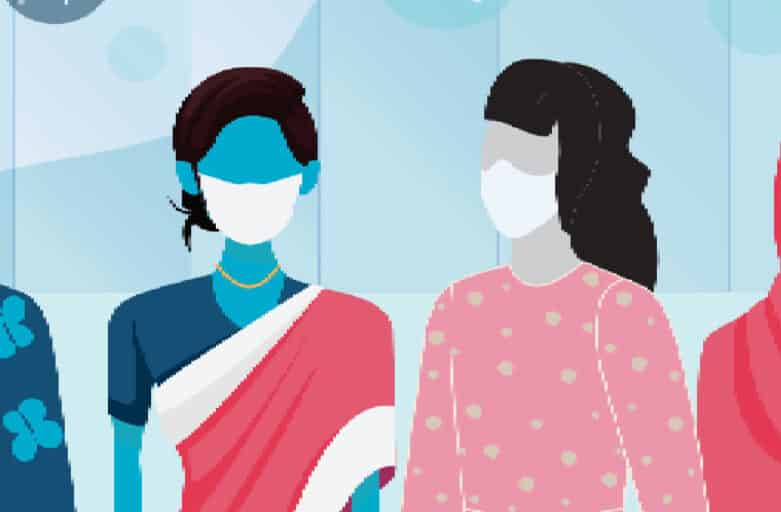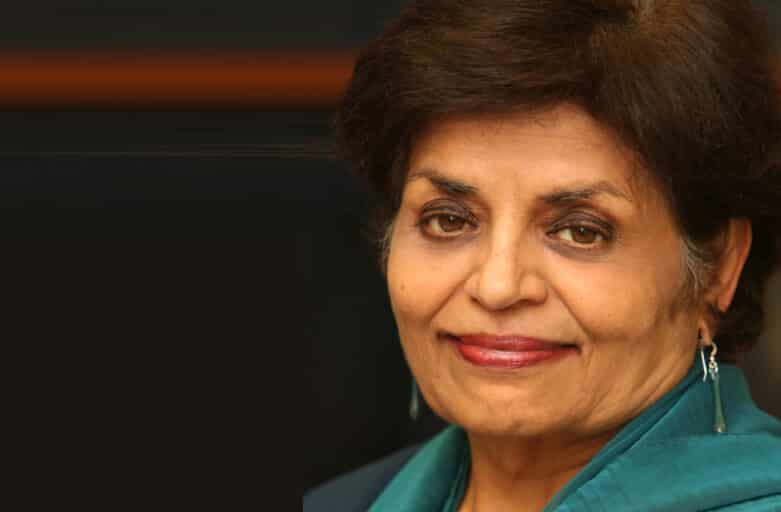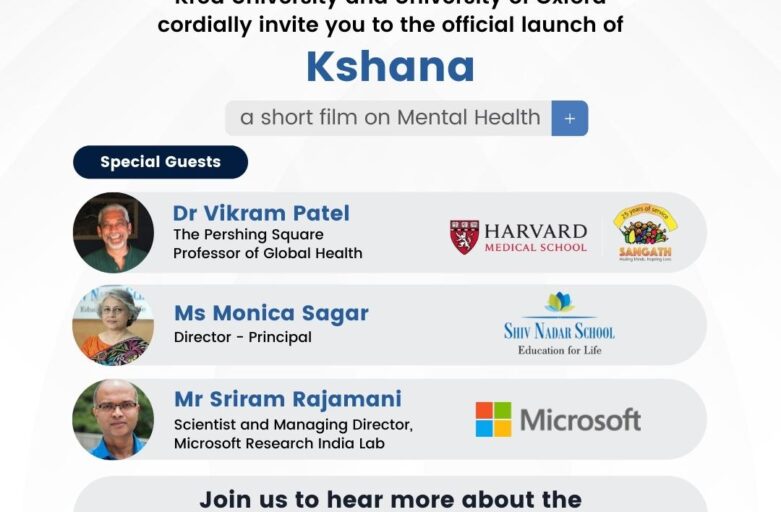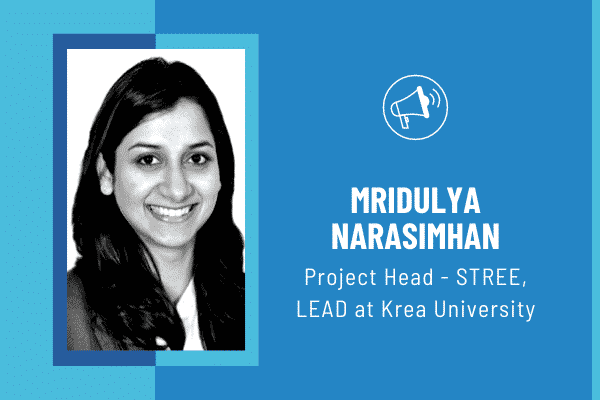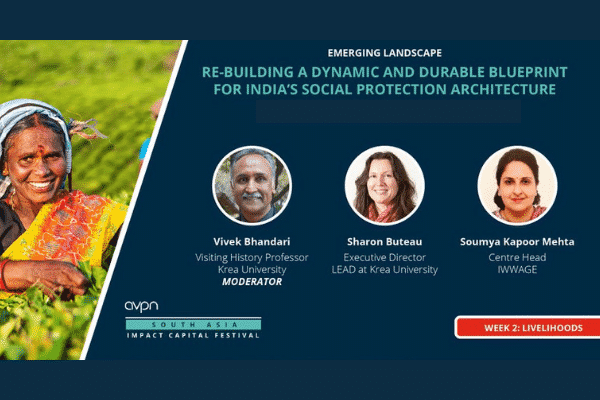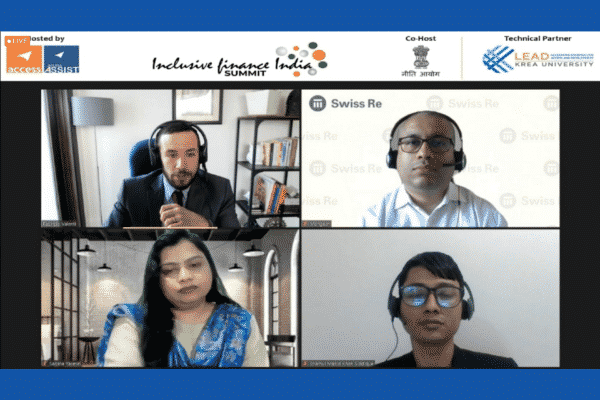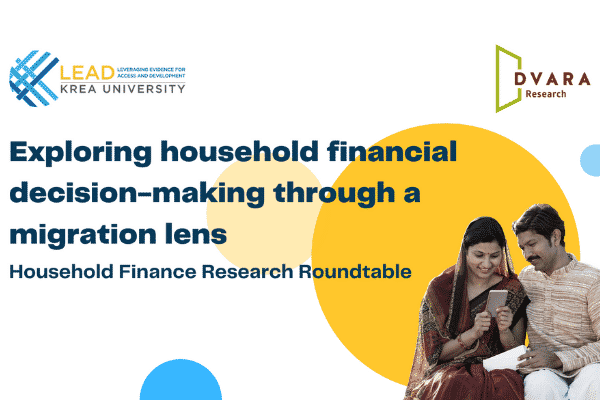Initiative for What Works to Advance Women and Girls in the Economy (IWWAGE) aims to build on existing research and generate new evidence to inform and facilitate the agenda of women’s economic empowerment. IWWAGE reported that two in five urban women were impacted by job losses during the first wave of the pandemic, owing to the unnatural development of dual workload of domestic care work and paid work. IWWAGE also took stock of the situation and put forward recommendations to make the ‘future of work’ more conducive to women’s workforce participation.
Tag: ifmr lead
In conversation with Dr Vishakha N Desai, Member, Governing Council and Academic Council at Krea University
Dr Vishakha Desai is a member, Governing Council and Academic Council, Krea University. She is also Senior Advisor for Global Affairs at Columbia University, and an adjunct professor at the School of International and Public Affairs. She was President and CEO of the Asia Society, a leading global organisation committed to strengthening partnerships among the people, leaders and institutions of Asia and the United States. In 2012, President Barack Obama appointed her to serve on the National Museums and Library Services Board. Dr Desai holds a BA in Political Science from the University of Mumbai, and MA and PhD in Asian Art History from the University of Michigan.
Dr Desai, the theme for the International Women’s Day 2022 is ‘Gender Equality Today for a Sustainable Tomorrow’. Why, according to you, is every word in this year’s theme is crucial
The phrase sustainable future, implies that it would be a future that would have consistency, a clear path and continuous renewal. Such a world is not possible if half the human race is not fully involved in creating that future. Equality doesn’t just mean participation but also equity of ownership, where women not only need a place at the table but also have the capacity to change the shape of the table, if necessary, to create a more sustainable future.
Personally, do you believe that the world needs to dedicate a day exclusively to reinforce, reiterate the role, existence and impact of women in society? What is your view?
I wish we didn’t have to dedicate a day to highlight the role of women in society. It implies that the days in the rest of the year are not about issues and aspirations of women. The main reason we need to highlight women’s contributions on a single day is to remind everyone that this needs to continue throughout the year! Not a token that can be forgotten the next day, but an important step that paves a road.
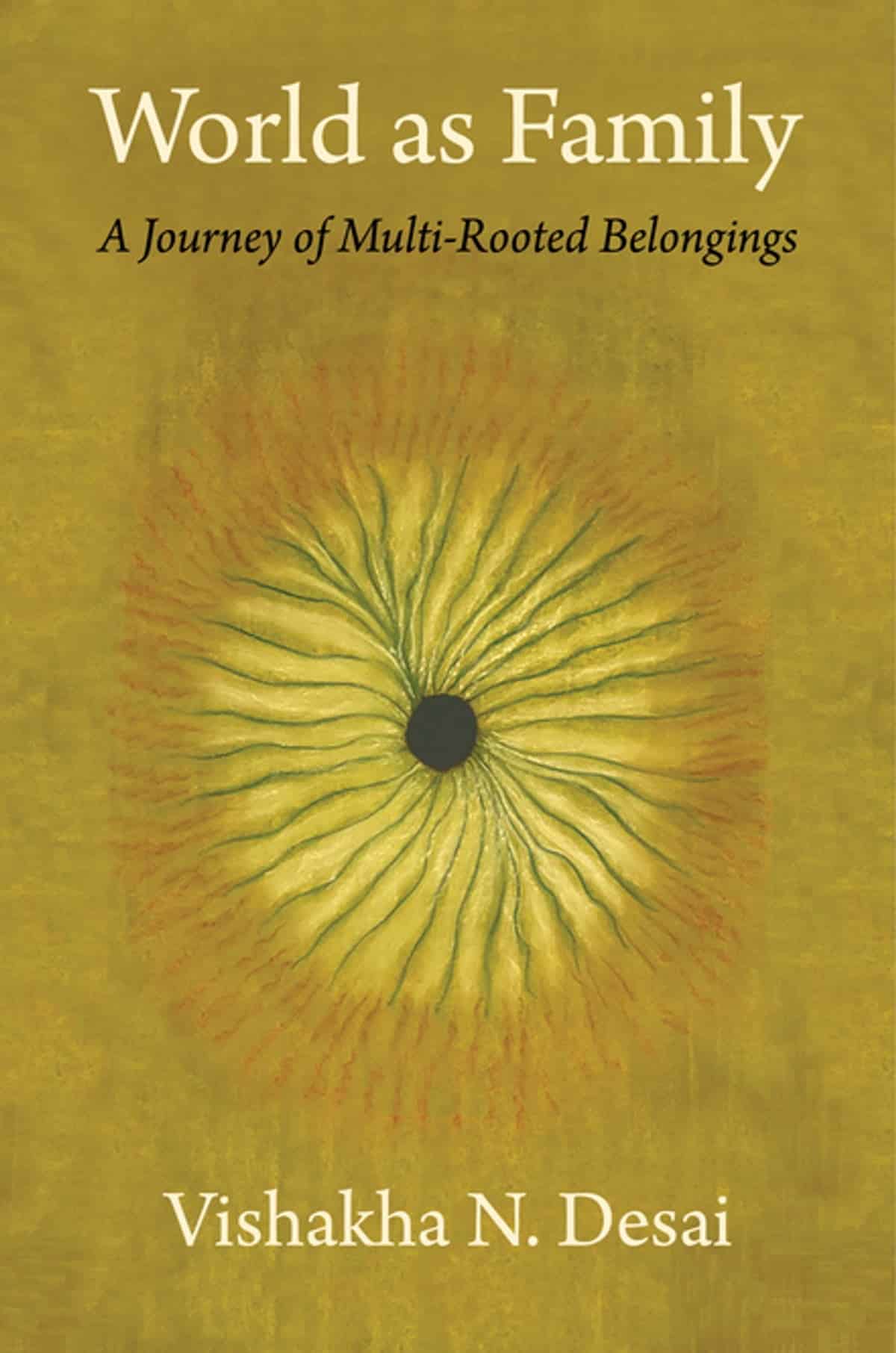
In an interview about your recent book, World as Family, responding to the relevance and importance of the idea of the book, you say, “the Coronavirus reminds us that no matter where we are, and who we are, the pathogens of the pandemic will affect our bodies the same way. My dancer friend Faustin Linyekula once said, the world lives in our body.” If we were to apply the same principle to the context of gender equality, would you say, women across the world – no matter the countries they are from – are grappling with a common set of issues and are in a sense, united in their fight for equality?
With the exception of a few matrilineal societies, it is fair to say that women in many parts of the world face issues of discrimination, but they are not always the same. As we have learned with Covid, while the pandemic affects people with the same level of alacrity, it does matter how individual countries or local communities handle the pandemic. Similarly, while women suffer inequality universally, how their issues are handled by political and social leaders does affect their well-being.
You call two countries – India, and the United States – your home. As a woman, have you had to straddle these two worlds, differently?
Given the different cultural contexts of the two countries, of course, one has to be sensitive to the surrounding conditions. But I do feel that through my upbringing in early independent India in a family of Gandhian freedom fighters, I learned to have my feet firmly planted while keeping my mind and eyes open to the world. And that has served me well no matter where I am.
What is your take on the global progress on gender equality?
After the Beijing women’s conference, there was a strong sense that women all over the world will continue to move forward with confidence, but it is fair to say that the progress has been unequal. For example, in India, more girls were going to school but during the pandemic, it affected young female students as well as women workers more adversely than men. In other words, in many parts of the world, new policies may have been put in place, the social attitudes have not changed fast enough because there has been less attention paid to changing the mindset.
In countries across the world, women even in positions of power have had to make choices that men are less likely to make. While workplace policies over years have attempted bridging the divide, at a time when the world is talking of gender equality for a sustainable future, how do we accelerate systematic support so that women continue career roles while they continue to be mothers and caregivers?
First and foremost, we have to recognize that all societies have to account for the needs of families to provide shelter and financial support and taking care of the children and elders. These functions need not be gendered. That is the reason some northern European countries are focusing on support for children and elders and not penalize women who often end up being the caretakers.
Do you believe that the fight for equal rights is an everyday work-in-progress?
Yes.
Do you have any advice for students who seek careers at the intersection of sustainable development and gender?
Sustainable development is often exclusively associated with environment and climate change, and it sounds very neutral. But as we are learning now, issues of equity, class and gender do affect how the climate crisis plays out. For example, it is only in the last five years or so, scholars have begun to highlight how the urban poor are more adversely affected by environmental degradation than others. Similarly, the environmental degradation caused by wood and cow dung-burning cooking affects rural women more severely, and requires a gendered lens. So, it is important to provide a gendered lens to the questions of environmental sustainability , and in the process expand the definition of sustainable development.
And finally, if you were to share with us, three women you consider your role-models, who would they be?
My mother, Ruth Bader Ginsberg, and my women friends in their late eighties who continue to be engaged, active and always interesting!
Launch of ‘Kshana’ – a short film on Mental Health
Krea University and University of Oxford are delighted to invite you to this collaborative event with University of Oxford. Over the past year, LEAD at Krea and IndOx have been working on significant impact activities under this partnership, focused on the theme of Mental Health. We conclude this year with the launch of a short film, fully funded by the initiative.
Join the meeting here: https://krea-edu-in.zoom.us/j/98469424449?pwd=WGk2YzJ2Zi9HY2lkQmEyZ0xydDJlQT09
Passcode: 12345
LEAD at Krea part of panel discussion on key issues on financing MSMEs
Executive Director of LEAD at Krea University, Sharon Buteau, was a panellist at a live Q&A session on ‘Financing for MSMEs’. The event was organised by the Global Alliance for Mass Entrepreneurship India (G.A.M.E India) and broadcasted on Facebook Live. The panel delved into strategies for enabling a formal credit line for MSMEs, and the challenges faced by NBFCs in raising capital.
Behind Bangladesh’s incredible economic growth
Bangladesh has witnessed an incredible growth in its economy over the past few years, roaring ahead of India in many areas despite the COVID-19 pandemic. Kartikeya Bhatotia (Research Associate – LEAD at Krea University) takes a deep dive into this story, examining factors that have contributed to Bangladesh’s growth, and shares lessons that India can take from its neighbour. Read it here.
Examining the ill effects of arsenic contamination in drinking water
In this research brief, Sujatha Srinivasan (Research Fellow) and Geetanjali GK (Research Associate) from LEAD at Krea University share insights on the impact of increasing awareness about arsenic contamination in the adoption of healthier and safer water-use behaviours in Bihar. The study was conducted in collaboration with the Max Planck Institute for Research on Collective Goods. Read it here.
Mridulya Narasimhan joins Women’s Economic Empowerment Working Group at SEEP Network
Mridulya Narasimhan (Project Head – STREE, LEAD at Krea University) has joined the steering committee for the Women’s Economic Empowerment Working Group at Seep Network (WEE WG). The WEE WG brings together a diverse group of people to advance women’s economic agency, financial decision-making, and participation in markets.
AVPN SAICF 21: Reimagining India’s Social Protection Architecture
LEAD at Krea University hosted a session “Re-building a dynamic and durable blueprint for India’s Social Protection Architecture” at AVPN Asia’s South Asia Impact Capital Festival. The panel featured Executive Director Sharon Buteau and Soumya Kapoor Mehta (Head – Initiative for What Works to Advance Women and Girls in the Economy), and was moderated by Vivek Bhandari (Visiting Professor of History, Krea University). The discussion revolved around reimagining India’s social protection architecture in the new normal, using emerging design elements that are research, data, and systems driven.
LEAD at IFI Summit 2021: Exploring meso-level insurance for farmers
The Inclusive Finance Summit went virtual this year and presented a series of exciting events for two days. LEAD at Krea University was a technical partner at the Summit. As part of the engagement, LEAD hosted a panel discussion on ‘Mitigating Agricultural Risks: Meso-level Insurance in Agriculture’ moderated by Fabrizio Valenti, Head, Financial Inclusion. Research Fellow, Sabina Yasmin, presented insights from an ongoing study on the potential of meso-level insurance in protecting farmers from various agricultural risks, supported by CIIE.CO under the Bharat Inclusion Initiative. Other panellists included Mangesh Patankar (Swiss Reinsurance Company) and Enamul Mazid Khan Siddique (Oxfam, Bangladesh). Watch it here.
LEAD’s research proposal shortlisted by Dvara Research
Researchers from LEAD at Krea University presented findings from their ongoing research at the Dvara Research’s Household Finance Research Roundtable. The study, one of the 10 research proposals selected by Dvara, seeks to identify and understand factors that influence financial decision-making through a migration lens.
